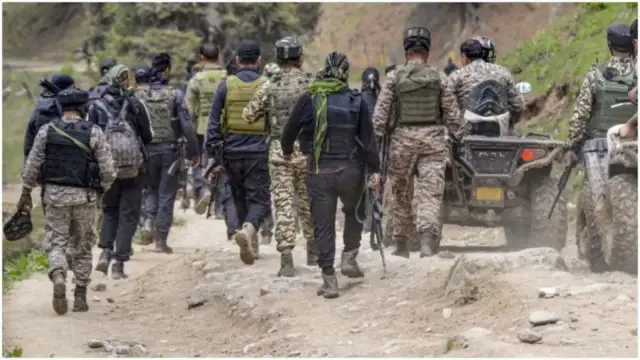Diplomatic turmoil deepens: Khalistani terrorist Pannun claims reveals communication with Trudeau's office, accuses India of spy network
Pannun’s statements have added further fuel to an already tense diplomatic situation, with both countries at odds over accusations related to Nijjar's assassination and broader concerns over interference.

Word News: Khalistani terrorist Gurpatwant Singh Pannun, leader of the banned organization Sikhs For Justice, revealed during a recent interview with CBC News that his group had been in contact with the office of Canadian Prime Minister Justin Trudeau for the past 2-3 years. Pannun stated that their communications included detailed information about alleged spy networks set up by Indian officials in Canada. He specifically mentioned Indian High Commissioner Sanjay Verma and his predecessors, accusing them of aiding agents who assassinated Khalistani leader Hardeep Singh Nijjar.
Canada-India diplomatic fallout
Pannun's statements come in the wake of escalating tensions between India and Canada. On October 14, India recalled its High Commissioner Sanjay Verma and other diplomats after Canada named them as 'persons of interest' in the investigation of Nijjar's murder. In retaliation, India expelled six Canadian diplomats. While the Royal Canadian Mounted Police (RCMP) claims to have uncovered links between Indian government agents and violent acts targeting pro-Khalistani elements, no concrete evidence has been publicly presented.
Accusations against Indo-Canadians
Pannun also took aim at the Indo-Canadian community, accusing them of disloyalty to the Canadian Constitution. He criticized the community, including Indo-Canadian MPs, for not supporting Trudeau following his statements on the Nijjar case in September. He further escalated his rhetoric, claiming that Indo-Canadian Hindus should leave Canada and return to India, citing their supposed allegiance to the Indian Constitution. Pannun’s statements have added further fuel to an already tense diplomatic situation, with both countries at odds over accusations related to Nijjar's assassination and broader concerns over interference.














